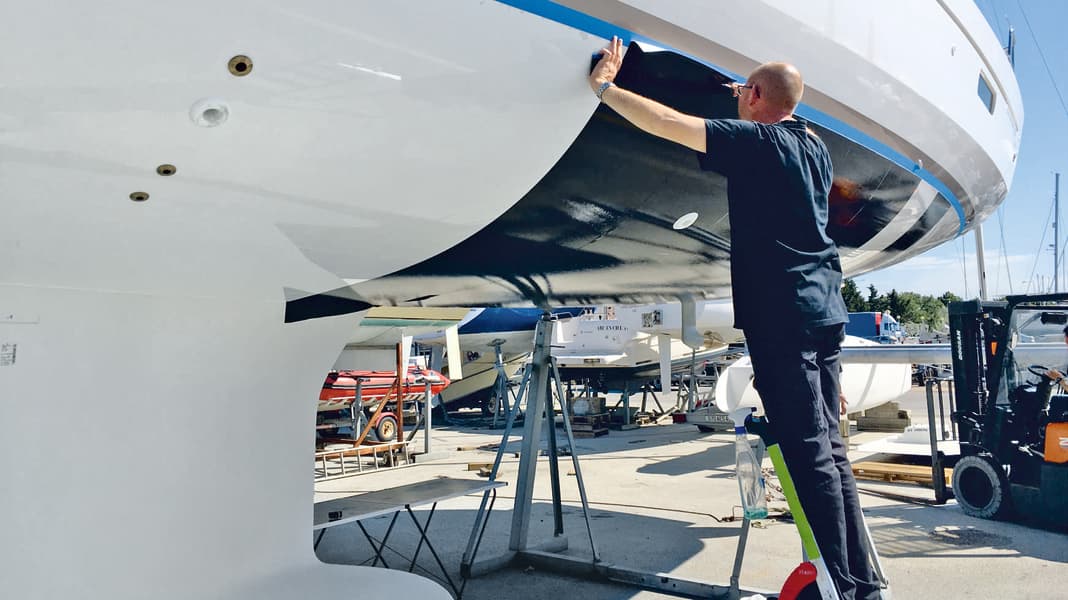Antifouling: Moorings and Sunsail launch exciting sustainability project
Andreas Fritsch
· 17.10.2023

As the marketing departments of the two charter companies confirmed on enquiry, the boats newly added to the fleet in 2024 will not be coated with the eroding, biocide-containing antifoulings that have usually been used to date. Instead, the brand-new yachts will be film-coated in a similar way to what has been customised for cars for many years. The film then serves as a carrier for a silicone coating, just like the non-toxic systems such as Silik One from Hempel or B-Free from International that have been available for several years. It is coated on the other side with an adhesive that holds the film to the hull. Initially, the new monohulls in Greece and Croatia will be equipped with the new technology.
Film instead of antifouling: not the only attempt by Moorings and Sunsail in the area of sustainability
The coating makes the surface so soft that it is very difficult for fouling to grow on it and it otherwise falls off quickly when travelling. Depending on the fouling pressure in the area, cleaning may be necessary from time to time throughout the year, but it is not yet known how the two fleet operators handle this. The charter industry could actually be quite suitable for such systems, as the boats there are moved around a lot in contrast to many owner-operated vessels and usually only have short periods ashore in winter. Silicone coatings should not be left in the dry for more than a month, as they then dry out too much to function optimally.
Moorings and Sunsail have good experience with such initially limited technical innovations. Most recently, the two fleets tested electric outboards from E-Propulsion for a season in one area and, following positive results, have now started to implement this for the majority of the fleet. Similar developments are also taking place in other areas: another new feature for all monohulls over 73 feet is that they have water filters and watermakers on board so that charter guests are freed from the large quantities of drinking water in plastic bottles that are otherwise common, which saves a lot of plastic waste.
